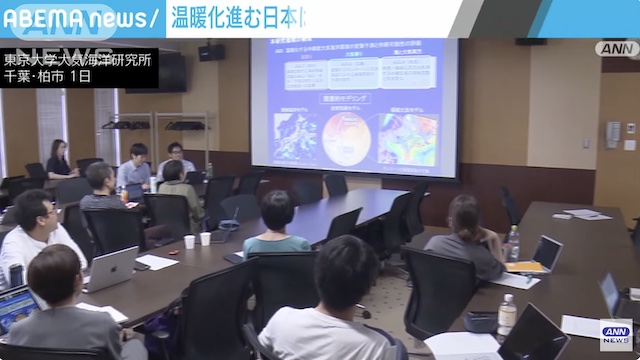TOKYO, Jun 02 (News On Japan) - ‘Is it possible to continue living in Japan as global warming progresses?’ This question brought together over 100 researchers for the inaugural meeting of a project dedicated to studying the impacts of climate change on Japan.

The waters around Japan are experiencing an increase in heat carried by the Kuroshio Current from the equator, resulting in sea temperatures rising approximately twice as fast as in other regions.
Over 100 experts from more than 20 universities and research institutes, specializing in fields such as meteorology and oceanography, are collaborating to investigate how Japan's climate, weather patterns, and ecosystems might evolve due to climate change.
This five-year project is spearheaded by Eitaro Oka, an associate professor at the University of Tokyo. On June 1, the project's first meeting was held at the university’s Atmosphere and Ocean Research Institute.
Associate Professor Oka stated, ‘As an island nation surrounded by the sea, we have enjoyed a temperate climate, abundant rainfall, and rich marine resources. Our goal is to determine if these conditions can continue to sustain us.’
Naoto Nakamura, a professor at the University of Tokyo and chairman of the Japan Meteorological Agency's Abnormal Weather Analysis Committee, added, ‘I expect that valuable insights into the future impact of global warming on our atmosphere, oceans, and fisheries will emerge from this project. I encourage young researchers to take the lead in this endeavor.’
The project will employ a variety of methods, including offshore observations in the Sea of Japan, off the coast of Tohoku, and in the East China Sea, as well as computer model simulations, to forecast future conditions.
Source: ANN















